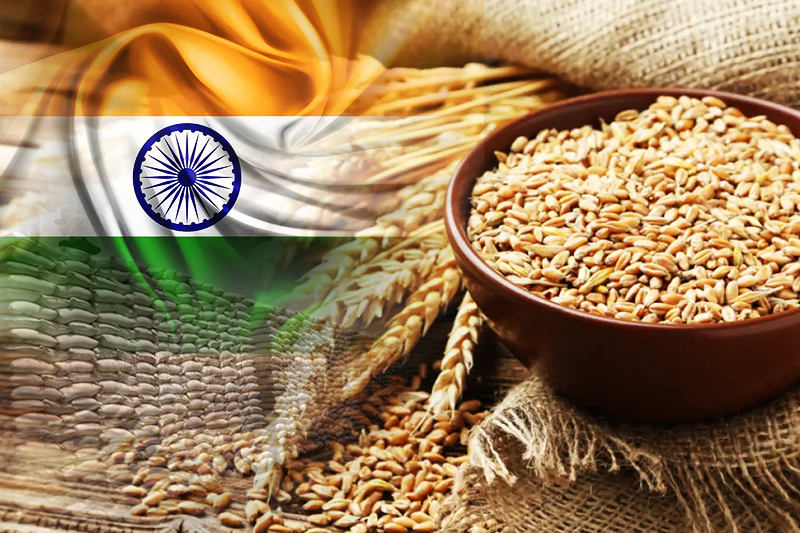India’s wheat stocks at 16-year low after record sales

Indian wheat stocks held in government warehouses dropped to their lowest level in 16 years after two straight years of reduced crop yields prompted New Delhi to sell record volumes to boost domestic supplies and bring down local prices.
Wheat reserves in state stores totalled 7.5 million metric tons at the start of April, down from 8.35 million tons a year ago, according to data compiled by the state-run Food Corporation of India. Over the past decade, wheat stocks on April 1 averaged 16.7 million tons.
“The stocks came down as we sold a record 10 million tons last year to stabilise prices,” a senior government official said.
Despite the tight supply, New Delhi has resisted calls to encourage imports by cutting or removing the current 40% tax, or by buying directly from top suppliers such as Russia.
Instead, it has dipped into state reserves to sell wheat to bulk consumers, such as flour millers and biscuit-makers, to try to curb domestic prices that have been above the state-fixed minimum buying price since the last crop was harvested.
“Even after selling a massive quantity, we managed to ensure that the stock level didn’t fall below the buffer norm. Going forward, the government is keen to ensure that wheat stocks do not fall below 10 million tons,” the government official said.
The government has buffer and strategic reserve norms that mandate holding wheat stocks at or above 7.46 million tons on April 1.
This year, the government needs to achieve its target of procuring 30 million to 32 million tons of wheat from farmers to ensure that stock levels remain above the buffer norm for the next season, said a Mumbai-based dealer with a global trade house.
India failed to achieve its wheat procurement target in 2022 and 2023, as heat waves curtailed the crop size.
The country banned wheat exports in 2022 even as export demand rose as the Russia-Ukraine conflict led to a global shortfall.
“If the government fails to procure the required quantity… it can consider allowing duty-free imports after the general election,” the dealer said.
Read also
Wheat in Southern Brazil Impacted by Dry Weather and Frosts
Oilseed Industry. Leaders and Strategies in the Times of a Great Change
Black Sea & Danube Region: Oilseed and Vegoil Markets Within Ongoing Transfor...
Serbia. The drought will cause extremely high losses for farmers this year
2023/24 Safrinha Corn in Brazil 91% Harvested
Write to us
Our manager will contact you soon



